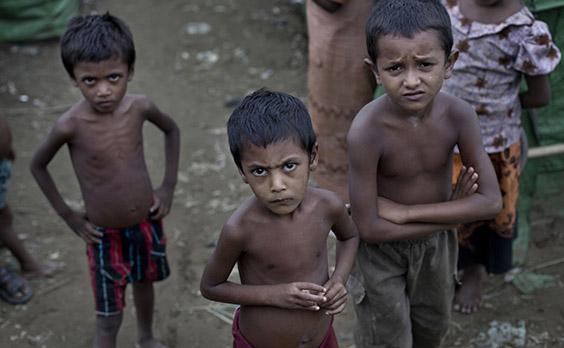Global risk of genocide hits 10-year high amid calls to prevent civilian mass killings by governments
Sudan and Myanmar ranked as being at greatest risk of experiencing new episode of state-led mass killing, according to annual findings by NGO

Your support helps us to tell the story
From reproductive rights to climate change to Big Tech, The Independent is on the ground when the story is developing. Whether it's investigating the financials of Elon Musk's pro-Trump PAC or producing our latest documentary, 'The A Word', which shines a light on the American women fighting for reproductive rights, we know how important it is to parse out the facts from the messaging.
At such a critical moment in US history, we need reporters on the ground. Your donation allows us to keep sending journalists to speak to both sides of the story.
The Independent is trusted by Americans across the entire political spectrum. And unlike many other quality news outlets, we choose not to lock Americans out of our reporting and analysis with paywalls. We believe quality journalism should be available to everyone, paid for by those who can afford it.
Your support makes all the difference.A number of countries have been identified as being at high risk of experiencing a new episode of genocide, as annual rankings show civilian mass killings at the hands of government forces are on the rise following a decade of decline.
An assessment by NGO 'The Early Warning Project' found that Sudan was most at risk, with an estimated seven per cent chance of a new mass killing episode, while Yemen was in second place, with its risk having risen markedly since last year, when it was tenth.
Myanmar ranked in third place, with increased violence against the Muslim minority Rohingya said to be placing them at high risk of genocide.
Sudan, Yemen, Myanmar, Nigeria and Afghanistan make up the top five countries facing the greatest risk of new cases of civilian atrocities at the hands of their governments, according to the assessment, which uses publicly available data to rank the likelihood of state-led mass killings.
It states that Sudan continues to bear many of the markers of nations that have committed mass killings in the past, while recent reports from Myanmar of murder, widespread rape and destruction of villages by security forces targeting Rohingya are further evidence that long-term persecution in northern Rakhine State has erupted into mass atrocities.
In Burundi, which ranked as being sixth most at risk and where the United Nations has documented sexual violence, torture and “genocidal rhetoric” by the government, The Early Warning Project also gave compelling empirical indicators that the government is at risk of committing mass killing.
Political turmoil catapulted the country from 56th in 2015 to sixth in 2016, with its estimated risk now topping four per cent.
The Early Warning Project forecasts risks using public data and advanced methodologies built on 50 years of historical indicators to highlight cases where mass atrocities have not started but where warning signs are detected.
Cameron Hudson, director of the Simon-Skjodt Center for the Prevention of Genocide, told The Independent: “After a decade of decline, civilian mass killings by governments against their own people are once again on the rise.
"We see this tool as an important step for policymakers and the general public to better understand risks for mass killing, enabling them to engage early on to prevent genocides from happening.
"By combining the power of analytics with the growing body of social science around mass killing onsets, we hope to galvanise preventive actions to avoid these outcomes."
Join our commenting forum
Join thought-provoking conversations, follow other Independent readers and see their replies
Comments